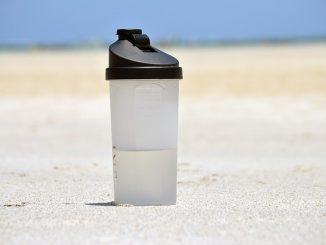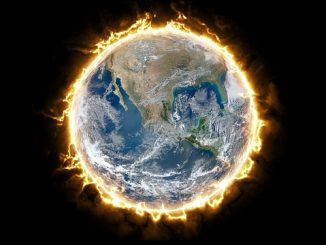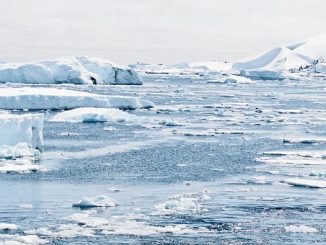
Most, if not all studies about an asteroid striking the Earth point to tsunamis as its worst effect, especially because it is twice as likely to hit water rather than land — 75% of our planet is covered in water after all. The farther from shore it hits, the deeper the water it strikes, the taller the waves it produces, and the more destruction it is likely to cause. But, that would still depend on whether the affected area is densely populated or not.
It’s a sound conclusion, but not necessarily the right one. Based on a study led by Clemens M. Rumpf of the University of Southampton UK, it’s not asteroid-induced tsunamis that we should be worried about — it’s the killer winds it will cause. According to Rumpf, while tsunamis do appear to have the most far-reaching effects mainly because tsunamis can literally travel great distances, their intensity can be diminished as the continental shelf dampens the ocean waves.
To demonstrate their case, Rumpf and his colleagues focused on three possible impact scenarios: the asteroid burns up in the atmosphere before striking the ground; the asteroid makes a direct ground impact; or the asteroid hits the ocean.
From the flow chart they presented, it would seem that the best case scenario will be the asteroid bursting in our atmosphere (referred to as ‘airburst’), with only its broken up fragments striking our surface causing high winds, overpressure and thermal radiation. On the other hand, the worst case scenario is a direct ground impact because aside from high winds, overpressure and thermal radiation, it will have additional effects whose intensity will depend on its final crater size, ejecta blanket and resulting seismic shock. And of course, the faster the rock is hurtling towards our planet, and the more densely populated the area it strikes, the more death and destruction it will cause.
But, that’s just descriptions without figures. Because when numbers enter the picture, it becomes a whole different story. The team specifically expounded on two scenarios for a better illustration.
In the first scenario, an asteroid that’s 650 feet (or about 200 meters ) wide strikes the Atlantic Ocean 80 miles (or about 130 kilometers) from the shore of Rio de Janeiro. In this case, the approximate number of fatalities is 50,000, with 75% deaths resulting from an incoming tsunami, while the rest get killed by airburst winds.
In the second scenario, London and Berlin get hit by two different sized asteroids coming in at the speed of 12.4 miles per second (20 Km/s) — one is 165 feet (50 meters) wide and the other is 650 feet (200 meters) wide. Aside from the size of the asteroid, they also compared the effects of a mere airburst impact versus an airburst with ground impact. And the results are downright terrifying.
In either case, the numbers of estimated deaths are in the millions, with majority being blown away and killed by deadly hurricane-like winds, and the rest dying from the impact, earthquakes, heat, debris, pressure waves and tsunamis.
As grim as the prospects are, there’s still good news in all of this. First of all, a gigantic asteroid hitting the Earth isn’t really a common occurrence — it’s expected to happen only once every 40,000 years. Second, there’s a big chance that an asteroid will hit an unpopulated or scarcely populated area, because a big part of our planet’s surface fits this description. Third, there are many ongoing projects that focus on defending our planet from deadly asteroid strikes.
If that’s not enough consolation for now, it’s pretty understandable. After all, we’re just talking about probabilities. Furthermore, even NASA has admitted that we’re not nearly equipped to deal with a surprise asteroid attack.
Still, our technology is advancing at exponential speeds. If we’re lucky enough to avoid being hit by a killer asteroid in the near future, maybe our technology will still have a chance to catch up in time.
The study has been approved for publication in the journal “Meteoritics and Planetary Science” and is now available online through arXiv.org.
- Bulenox: Get 45% to 91% OFF ... Use Discount Code: UNO
- Risk Our Money Not Yours | Get 50% to 90% OFF ... Use Discount Code: MMBVBKSM
Disclaimer: This page contains affiliate links. If you choose to make a purchase after clicking a link, we may receive a commission at no additional cost to you. Thank you for your support!




Leave a Reply